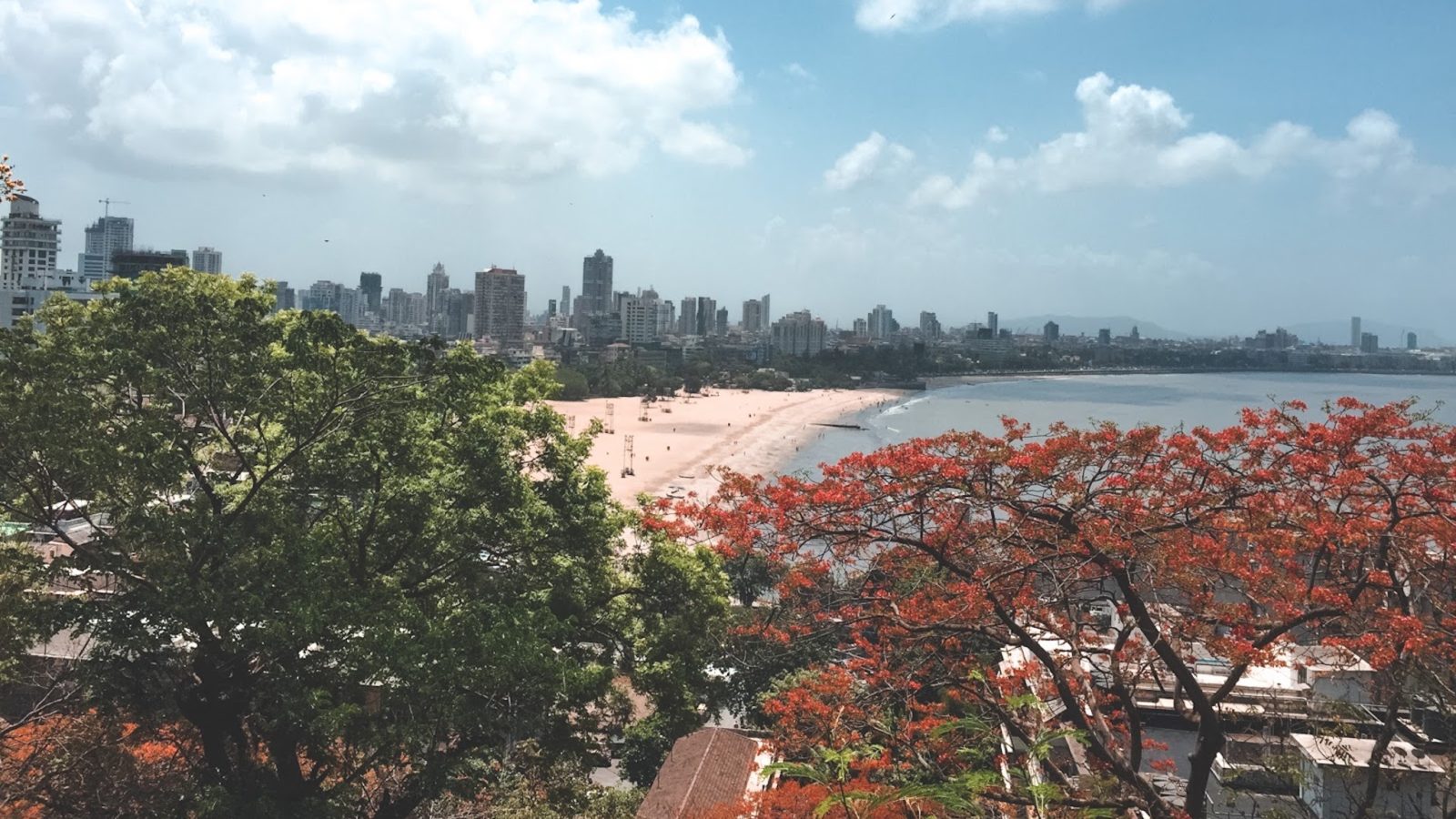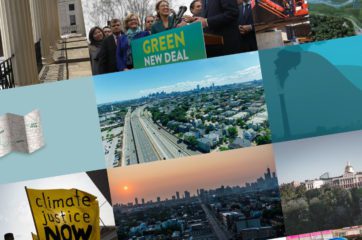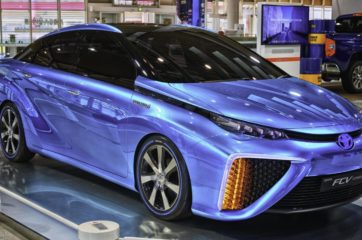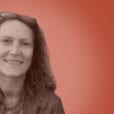Madhavan Thirumalai recently joined our Board of Directors, and we are thrilled to welcome him to our team. He is a serial entrepreneur, and passionate outdoorsman with a commitment to lending his time and energy to solving the most pressing issues facing us today, chief among them, the climate crisis. I spoke with Madhavan to learn more about him and what he hopes to achieve at Climate XChange.
Read the transcript below (edited for clarity and brevity).
Maria Virginia Olano
Hello, good morning. Thanks so much for making the time to chat with us today. I am so excited to introduce you to our community and to learn a little bit more about your background.
Madhavan Thirumalai
Thank you Maria, let’s do it.
Maria Virginia Olano
Do you want to start by telling us a little bit about your story, your background, and briefly about your past work experience?
Madhavan Thirumalai
I grew up in India, and I am a software engineer. I spent most of my life in software, first in India, then in the Silicon Valley. I moved to the U.S. in 1988, and I have been living in the Bay Area for 21 years. Then 12 years on the East Coast working in finance and finance tech – and two of those years I spent back in India doing nonprofit work. That’s my life on the work front, and a sense of my geography. At a personal level, I am a very outdoorsy person. I sail, I backpack, I hike, I ride my bike. So, I am very close to nature, and that’s a nice segway as to why, I am very concerned about what’s happening with our planet in terms of global warming, and I think what drew me to Climate XChange was a chance to fight in this battle against climate change. And I don’t know if there is any more important cause for us all to focus on.
Maria Virginia Olano
Do you think there was a time in your life or a specific moment that made this challenge very evident to you and made you want to focus your time and energy in doing something about it?
Madhavan Thirumalai
There wasn’t one particular moment, but there were many moments. I remember going back to India after the tsunami in 2004 and looking at the beaches, and these beautiful, pristine beaches of my childhood were now covered with garbage. It just broke my heart. I went back to places I used to hike as a boy, and to see the slow, constant erosion of nature by human settlement just made me sad. When I went back to India, we went up to the Himalayas. There were these beautiful valleys covered with garbage because the municipalities didn’t have the ability to process the garbage. That’s about solid waste management and the kind of impact we have on the world in terms of our consumerism and plastic. Also, it has less to do with carbon and greenhouse gases, but many times I have stood by the ocean and imagined what this would be like in 100 years. It’s just shocking, all these places that I grew up in – I am so grateful for these places and for the experiences they provided me, but all these places will be underwater in a not-so-distant future. We have to do something about it. It’s not one moment, per se, but a hundred moments, many times every day, that make me want to focus on this cause more than any other.
Maria Virginia Olano
Right. So you started a few ventures of your own – can you tell us about some of those lessons that you learned as an entrepreneur and as a leader in the private space that you hope to carry over into this impact driven work that you are doing currently.
Madhavan Thirumalai
If I may, Maria, I just want to talk about a slightly different thing for a moment, and then we will answer the question. In the past, I have tried to address the problem in different ways. Back in 2004 or 2005, I tried to start a flexible, real-time carpooling portal. It turned out to be very much like the Über idea, but that company didn’t succeed. In 2008, I tried to start a two-wheel electric vehicle company, at a much lower cost and physical footprint than a Tesla, if you will. There are 115 million American commuters that commute approximately 30 miles per day. If you can get them out of their cars and into electric vehicles of some kind, that would be a big win. More recently, I am also helping an electric motor company called Lightning Motors in addition to working with Climate XChange and eGovernments Foundation back in Bangalore. What I’m saying is that I’ve attempted in the past, with degrees of success, to do my part as an engineer in the fight against climate change. I realized at some stage, that in addition to the private sector and technology doing its part, you also need policy. And I knew very little about it, so here I am at Climate XChange, trying to learn more about it, and like you said, trying to bring some of the skills I have built in other lives to Climate XChange.
What was the question you asked me, what do I bring from my past that would be useful here?
Maria Virginia Olano
Yes!
Madhavan Thirumalai
Okay, I’m going to do the best I can with this question. I think at the end of the day, a nonprofit should be run the way that a for-profit company is run. That you have objectives, that you commit to these objectives, and that you stay focused on those and you bring hard accountability to that mission. You hold yourself accountable and you hold others accountable and ask that they hold you accountable towards that set of objectives or goals you are pursuing. Usually there are, for lack of a better word, market forces. If your funding is tied to you meeting those objectives, then that keeps you honest innately. But if your funding is not tied, then it is easy for you to drift.
I imagine that all the general management, the people management, the organizational management, and the operational management expert skills I have been fortunate enough to learn over my career I could bring to bear here.
Maria Virginia Olano
Absolutely, and I am so excited, and we’re so lucky to have you. I think, as you say, often the private space and the nonprofit space tend to stay kind of separate, and we need to embrace the things that are working really well in terms of impact scalability and management from private sector spaces and apply them to impact-driven work. That’s the only way we’re going to be the most successful we can be.
Madhavan Thirumalai
I could not have said that better.
Maria Virginia Olano
Tell me a little bit about what you are excited about. What makes you most excited to be joining this team and where are the windows of opportunity as you see them.
Madhavan Thirumalai
I am still learning my way around how the company and the team operates. I am also very new to the overall space. I’m new to policy, and new to the science of climate change, I’m not an expert. I’m quite naive about the political process, the legislative methods. What am I personally excited about? I’m excited about the quality of people I have met over here at Climate XChange – the few employees I have talked to, as well as a few of the board members, and the passion that they have. That is exciting to me, I’m excited about the opportunity to learn. But most of what drives me is a chance to be part of a team fighting the most important fight of our lifetimes. To have agency, to be doing something about it, as opposed to sitting on the sidelines and despairing.
Maria Virginia Olano
I couldn’t agree more. Sometimes, I take a step back at the end of a long day and it’s easy to feel overwhelmed by the set of challenges that are ahead of us. But, at the end of the day, we are here, and we’re spending our time, energy, and resources trying to give us the best chance that we can at a livable future that hopefully reduces suffering, not just in our communities, but around the world as well.
On the inverse of that question, and I know you are just getting your bearings on the team, but are there any obstacles? Whether it be in the work at Climate XChange in general or in the movement building away from fossil fuels more generally speaking. What are the main obstacles as you see them that we still have to face and overcome?
Madhavan Thirumalai
If the question is addressed to the larger ecosystem and the political economic system that we live in, there are plenty of obstacles there. The people, including somebody who is being elected to the Supreme Court in the near future, who may not believe that climate change is real. The people who do not believe in science. And the deep vested interests from a lot of existing industry, which influence governs us to a large extent. And not all these vested interests have a reasonable long-term view. What’s the point of your company making so much money and you making so much money when your grandchildren are not going to be able to enjoy the same planet we have? How much is that money really worth to you? But not everybody thinks that way. So ignorance is what we have to contend with. And that is especially hard in this day of fake news and social media, where alternate realities are quickly created. People who are ignorant and uneducated, that’s one problem. Then there is just raw human greed.
It’s hard to understand how to mobilize people. A few years ago, I went for a bike ride and was having a cup of coffee, and talking to this woman who said “Oh, I am so bad, look at my car.” There was this big Suburban, and I said “How big is your family?” and she said “There are four of us.” I said “Why are you driving that car?” and she said “Yeah, I shouldn’t be, I’m so bad.” It’s different from someone who is ignorant, it’s a different category from the people who are greedy and corrupt. It’s people who are lazy, or unable to give up their lifestyles or change their lifestyles slightly to face the biggest crisis that the species has ever faced. Those are the obstacles as I understand.
Maria Virginia Olano
Absolutely, and I think you’ve hit the nail on the head, especially on that last note. That is perhaps the most frustrating part, the people who are in fact educated and understand the scale of this crisis and yet somehow feel themselves dissociated from the solutions to it. We see this all around, people who are aware and understand it, and yet somehow do not understand their own part in the problem but also the potential for their part in the solutions as well.
Madhavan Thirumalai
Again, I don’t have an answer, it’s not like we have to solve this, we’re all going to die. We are all going to die, but we’re going to leave behind a terrible planet. It’s like my generation has failed. I like bashing on the millennials, but part of me wants to go say to the millennials: “Well, we did invent the Internet and Star Wars, but I am so sorry that we have failed you. We have created an economy that’s destroying the planet.” Anyway, there is hopefully time to fix it, but you tell me.
Maria Virginia Olano
No absolutely, and I think what’s exciting is there are so many solutions right at our fingertips. Now, we seem to be at this tipping point where it’s a matter of engagement, public understanding in order to be able to actualize these solutions, scale them to the point where they will make a significant difference in what the future looks like. On that note, I like to ask this of everyone. What do you think the future looks like if we succeed? You’re spending a bulk of your energy in trying to envision solutions for these problems – what do you think the future looks like if you’re successful?
Madhavan Thirumalai
Well, the future looks like, hopefully we preserve the beautiful planet, the only home we have right now. And the future must be more equitable, it must be more just, it must be fairer than the society in which we have lived in the past and the society we live in now. For such a future to be, we consume less. Every human being is always conscious of their impact on mother Earth and what we are asking from her. And is able to evolve beyond the myopic, selfish, need or want of the moment, to constantly carry a longer-term view. And some societies have done it, the Costa Ricans have done it, and I believe the people from New Zealand do it. Could we all be that way?
Maria Virginia Olano
I hope that we can, and hopefully this moment and this year serves to help us advance that mindset shift and cultural shift that is so necessary if we are to have long-lasting change. Maybe in the last minute we have here, you mentioned that you love the outdoors and you like to be outside. What do you think is your favorite place in the world where you have experienced natural beauty?
Madhavan Thirumalai
Oh no, I couldn’t go there. The Western Ghats in India, the Himalayas, the West Coast of India, California, the Sierra Nevada. I’ve been so fortunate, I’ve travelled everywhere. Patagonia, I’ve travelled to New Zealand, the Great Barrier Reef in Australia. Lovely places in Europe, I’ve hiked in the Dolomites. How about this? The world. There is so much beauty in this world, and it’s all worth fighting for. The world is a beautiful place and worth fighting for, as Ernest Hemingway once said.
Maria Virginia Olano
I like that, and I couldn’t agree more. Well Madhavan, thank you so much for your time, and I’m looking forward to getting to work with you closer and getting to know you more.
Madhavan Thirumalai
Likewise, and I just want to say thank you for the work you’ve done in the past and thank you for what you do every day.
Maria Virginia Olano
Thank you, that means a lot. I’m excited for what comes next for our team.
Madhavan Thirumalai
Absolutely, let’s go make this happen.









